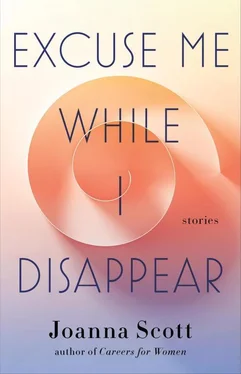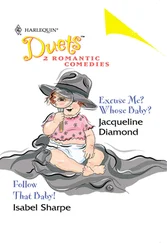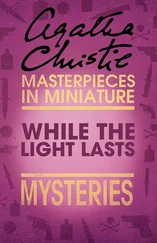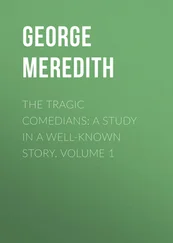In a small gallery adjacent to a chapel, we found ourselves surrounded by members of a large tour. The docent was speaking loudly, lecturing about the paintings in the room, and we stuck around long enough to learn from her why in one of the paintings, a saint was holding a cittern, and in another painting, a saint was holding a book. We learned that backgrounds were painted gold to make them visible in candlelight. We heard stories of martyrs and prophets and were encouraged to look closely to see secret symbols.
Jody seemed in no hurry to leave the gallery, even after the tour group moved on. There was one painting in particular, hung low on the wall, that caught her attention. It was an oil portrait on wood. Inside the heavy gilt frame was a portrait of a woman, her almond eyes heavily outlined in black, her dark brows curved, her nose exceptionally long and narrow. The face was stiff and unnaturally elongated, making it look mask-like. I wouldn’t have thought the painting would be of any interest to a six-year-old girl, until Jody called my attention to the one detail that I had to agree was quite striking: a teardrop, perfectly realistic, on the woman’s cheek.
Jody’s finger reached precariously close to the portrait. Remember that back then there were no electronic motion detectors protecting paintings. There wasn’t even a dedicated museum guard in that particular gallery. The nearest guard was stationed inside the doorway leading into the adjacent chapel.
I pulled Jody’s arm away from the painting and encouraged her to take a step back. At a safe distance, we stood side by side, examining the teardrop. I wondered how a tiny drop of paint, a visible bump on the wood, could so convincingly render the transparency of a tear. I was fascinated and yet, for some reason I can’t explain, troubled by its illusion. The effect of the tear was like a clock’s quiet ticking in a dark room, and the longer I stood there, the more unsettled I felt.
“How about we go to the gift shop?” I suggested. “You can pick out something for yourself. My treat.” Without waiting for Jody to respond, I took her hand and led her from the gallery.
We stopped in a nearby restroom, and when Jody finished drying her hands ahead of me I asked her to wait out in the corridor. I took an extra minute to reapply my lipstick, and then went out, expecting to find Jody beside the door. But Jody wasn’t there. I looked up and down the crowded corridor, then returned into the restroom and called her name. She did not answer. A toilet flushed, and from a stall emerged an elderly woman in a pillbox hat. I went back out into the corridor, my panic growing as I called for my niece, my voice rising loud enough to cause strangers to turn around in search of the disruption.
I thought Jody might have misunderstood my instruction to wait out in the corridor and had gone on her own to the gift shop. But she didn’t know where the gift shop was. I considered how easily distracted she was. Maybe she had followed another docent’s tour, or gone outside to smell the herbs again. Could someone have lured her away? She was a little girl who lacked the ability to recognize danger. No, I corrected myself—she may have been overly friendly, but she wasn’t stupid. Most likely, a security guard had spotted her and recognized that she was too young to be on her own. Where was the room where they brought lost children?
One thought pounded out the next as I rushed across the Chapter House, down a corridor and through the chapel and into the garden. I could hear the honking of impatient drivers on the street beyond the walls, and, further in the distance, the whine of a siren. I ran back through a corridor, stopping to check every gallery. I tried to be reasonable, telling myself that Jody must be nearby even as I feared the worst. I had lost my sister’s daughter. My bestest niece. Dear, sweet Jody.
“Jody, there you are!”
If I had been thinking clearly, I would have known exactly where I would find her—back in the last gallery where we had lingered to gaze at the dot of a teardrop.
“You gave me a scare!” I said, even as I became aware that the elderly woman in the pillbox hat was staring at us from across the room, as if we were the ones on exhibit. I lowered my voice to a whisper. “Don’t ever disappear like that again, Jody!”
“Sorry.” Her attention was now on her hands, perhaps so she wouldn’t have to meet my reproachful gaze. Her lower lip was curled in a pout, and with her thumbnail she picked at dirt underneath the nail of her index finger. I decided to give her an extra minute to feel remorseful and bided time by looking back at the painting, taking in the entirety of the portrait, thinking again that the face was like a mask, unreal except for that very real teardrop that was no more than a pimple of silver paint.
No, not even a pimple. In place of the teardrop was a flat, scratched blankness. A fuzzy nothing that reminded me of the shadow left behind when a candy button is peeled off its paper ribbon.
I looked at Jody, who was working at her fingernail, trying to pry free a fleck of dirt. I understood in an instant what she’d done. Beneath her sharp fingernail was a minuscule silver chip of bone-dry, ancient paint—a pimple of paint.
Jody, I didn’t say aloud, we better get out of here! I just grabbed the little hand containing that six-hundred-year-old teardrop, and I led my niece from the gallery, past the woman in the pillbox hat and into the crowded corridor, down the marble stairs, and out onto the street.
I used to be assiduous at keeping a personal journal. The record of my life consisted of a daily paragraph or two written in my sloppy handwriting, sometimes in pencil, more often in pen, in one of the spiral notebooks that are now gathering dust in my attic. I don’t know why I even keep them around. Rarely do I bother to read what I wrote, for I am apprehensive about what I may learn. I don’t like to be reminded of unfulfilled dreams, love affairs that ended badly, tests I failed, job interviews that came to nothing. I don’t want to see that the entries written in pencil have faded so much they are largely illegible. Regarding that day in June of 1965 when I treated my little niece to a trip to the city while her mother was in the hospital, I would rather forget how hard I was on my brother-in-law. Perusing words committed to paper fifty years ago, I wince at my vindictive charge that my sister’s illness was her husband’s fault. I am embarrassed at how oblivious I was to my own shortcomings. I read with disbelief about my indignation, my impatience and false assumptions.
My sister, in fact, would heal and go on to live a good life in remission for another twenty years, happily married to Jody’s father, who, shortly after his wife came home from the hospital, would get himself to an AA meeting and spend the rest of his life sober. Jody was destined to grow up and have two daughters of her own and work as a psychologist before succumbing at the age of sixty-three to the same cancer that afflicted her mother. At a New Year’s Eve party shortly before her death, she would ask me, “Auntie, do you remember that day you took me to the Cloisters when Mom was in the hospital?”
How could I forget! In fact, it turned out to be too easy for each of us to forget in our selective ways. I would gather from Jody that while she remembered the staring contest with the boy on the train, along with certain other details of the day, she had no recollection of her act of vandalism, and I was not inclined to remind her. Concerning that particular incident, my memory is infallible. Other events of that day, however—my success at reducing the cost of a pretzel, for instance—would be lost to oblivion if I had not provided an account in my journal—luckily, in pen.
Читать дальше












